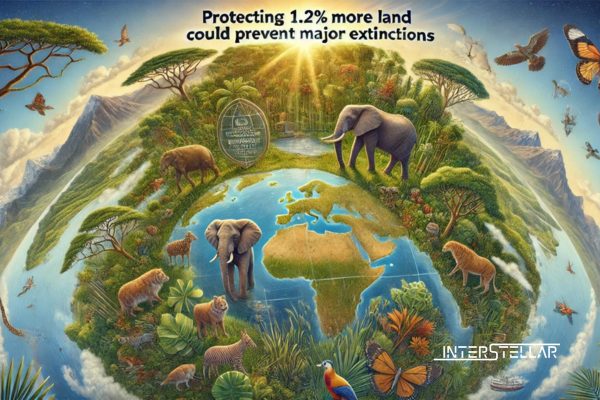Protecting 1.2% More Land Could Prevent Major Extinctions
Protecting an additional 1.2% of the world’s land as nature preserves could prevent the majority of predicted plant and animal extinctions. This initiative would cost about $263 billion, according to a study published on Tuesday.
Global Efforts for Protecting Biodiversity
The world is striving to meet a target to protect 30% of global land by 2030. This goal aims to safeguard wildlife from the devastating effects of climate change, pollution, and habitat destruction. Global policymakers will convene at a United Nations summit in Colombia in October to discuss strategies for achieving this ambitious goal.
High-Value Areas for Conservation
The study, published in the journal Frontiers in Science, sought to identify areas of highest conservation value. Carlos Peres, a study co-author and conservation ecology expert at the University of East Anglia, emphasised the need for strategic planning. “Most countries do not actually have a strategy,” Peres said. “The 30-by-30 targets still lack a lot of details because it doesn’t actually say what 30 percent should be protected.”
The proposed protections would cover an additional 1.6 million square kilometres (633,000 square miles). This area is about one-fifth the size of the United States and encompasses 16,825 global sites home to rare and threatened species. This is in addition to the nearly 16% of the world that already has some level of protection.
Financial and Logistical Considerations
The study estimated the $263 billion cost to acquire these new areas, many of which include private property, over the next five years. “Time is not on our side because it will become increasingly more expensive and more difficult to set aside additional protected areas,” Peres warned. Most of the cost involves land acquisition, with the study not considering the ongoing costs for maintaining and policing these reserves.
Biodiverse Hotspots and Conservation Priorities
Around three-quarters of the targeted sites are tropical forests, which are the world’s most biodiverse ecosystems. Countries like the Philippines, Brazil, and Indonesia host over half of these high-value sites. Russia has the most extensive area identified for conservation, with 138,436 square kilometres, an area equivalent to Greece.
Several African countries are also crucial for protection, with Madagascar having the fourth-highest number of sites. The Democratic Republic of Congo has the largest targeted conservation area on the continent. The United States is the only developed nation among the top 30 countries in the study, with 0.6% of the sites, equivalent to an area twice the size of Delaware.
Study Scope and Limitations
The researchers focused on land and freshwater ecosystems, excluding oceans or marine protected areas. Invertebrates were not included in the study due to insufficient geographical distribution data.


